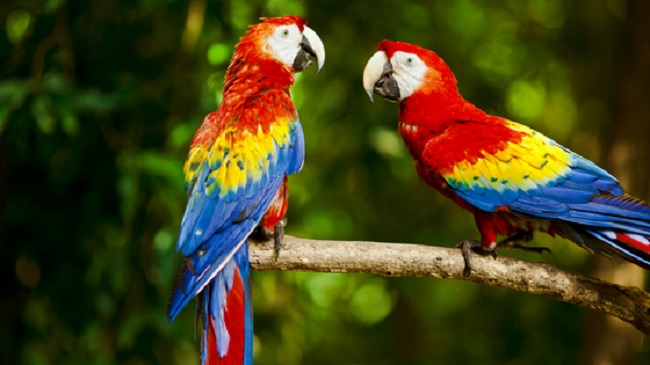Parrots are captivating and intelligent creatures that have been popular pets for centuries. When considering bringing a parrot into your home, it’s important to understand the factors that influence their pricing.
In this comprehensive guide, we delve into the world of parrots, exploring various breeds, their characteristics, and the key factors to consider when determining the cost of owning a parrot.

Parrot Breeds and Their Characteristics
Parrots come in a wide range of breeds, each with its unique characteristics, temperaments, and sizes. Some popular parrot breeds include African Greys, Amazon Parrots, Cockatoos, Macaws, and Conures.
Read Also:
African Greys are known for their high intelligence, while Amazon Parrots are praised for their vibrant plumage and vocal abilities. Cockatoos are cherished for their affectionate nature, and Macaws impress with their stunning colors.
Conures are smaller parrots known for their playful and sociable personalities. Understanding the characteristics of different parrot breeds can help you choose the right fit for your lifestyle.
Factors Affecting Parrot Pricing
The cost of parrots can vary significantly depending on several factors. These include the breed, age, rarity, color mutations, temperament, talking ability, and the breeder’s reputation. Rare and exotic species are generally more expensive than common breeds.
Additionally, parrots with unique color mutations, exceptional talking skills, and proven breeding records often command higher prices.
Young parrots tend to be more expensive than older ones due to their longer life expectancy and potential for bonding with their owners.
Parrot Acquisition Costs
When acquiring a parrot, there are several one-time costs to consider. These include the purchase price from a reputable breeder or adoption fee from a rescue organization.
Additional costs may include the cost of a cage, toys, perches, food bowls, and initial veterinary check-ups.
It’s crucial to invest in high-quality supplies and provide a safe and stimulating environment for your parrot’s well-being.
Ongoing Costs of Parrot Ownership
Owning a parrot involves ongoing expenses. These include the cost of high-quality parrot food, fresh fruits, and vegetables.
Additionally, regular veterinary check-ups, grooming services, and potential medical expenses should be factored into the budget.
Parrots require mental stimulation and social interaction, so providing a variety of toys and activities is essential.
Parrot Training and Behavioral Enrichment
Parrots are highly intelligent and require mental stimulation to thrive. Training sessions and behavioral enrichment activities, such as foraging toys, puzzle feeders, and interactive play, are vital for their well-being.
These activities contribute to their happiness, reduce boredom, and prevent behavioral issues. Investing time and resources into training and enrichment is an important aspect of parrot ownership.
Long-Term Costs
Parrots have long lifespans, with some species living for several decades. It’s crucial to consider the long-term costs associated with parrot ownership, including ongoing care, potential veterinary expenses, and the commitment of providing a loving and stimulating environment throughout their lives.
Considerations Before Bringing Home a Parrot
Before bringing home a parrot, it’s essential to consider your lifestyle, available time for socialization and training, and the necessary financial resources.
Parrots require dedicated attention, social interaction, mental stimulation, and a commitment to their well-being for the entirety of their lives.
Read Also:
Conclusion
Owning a parrot can be a rewarding and enriching experience. However, it’s crucial to understand the factors that contribute to the cost of parrots and the responsibilities that come with their care.
Researching parrot breeds, considering ongoing expenses, and providing a loving and stimulating environment are essential aspects of responsible parrot ownership.
By carefully assessing the financial and emotional commitment, you can embark on a wonderful journey of companionship with your feathered friend.
























